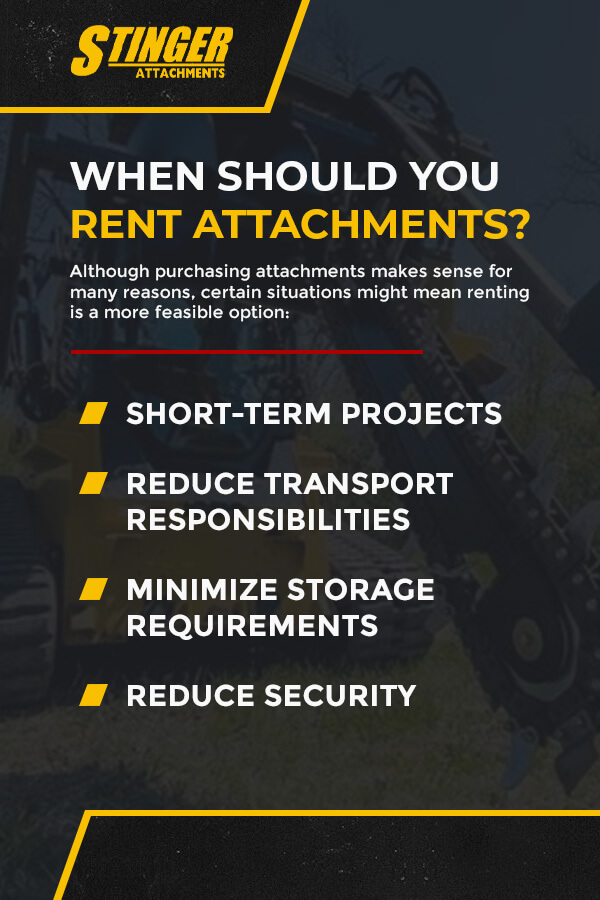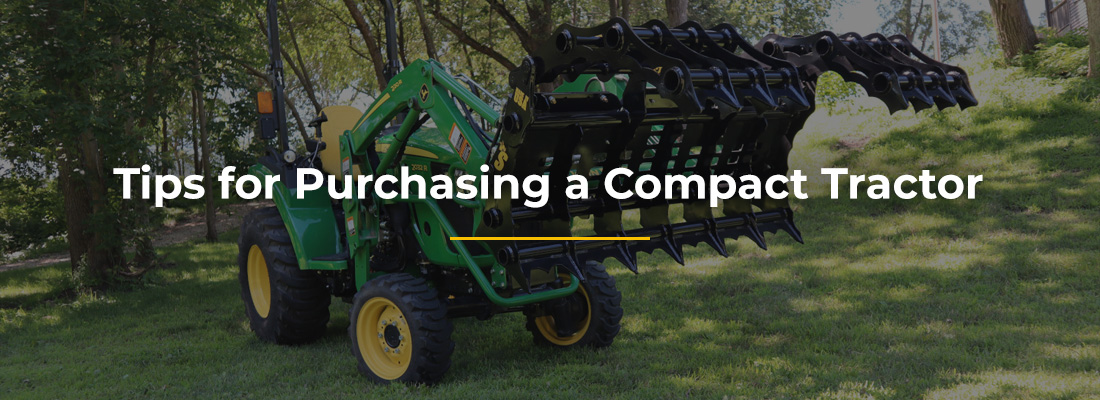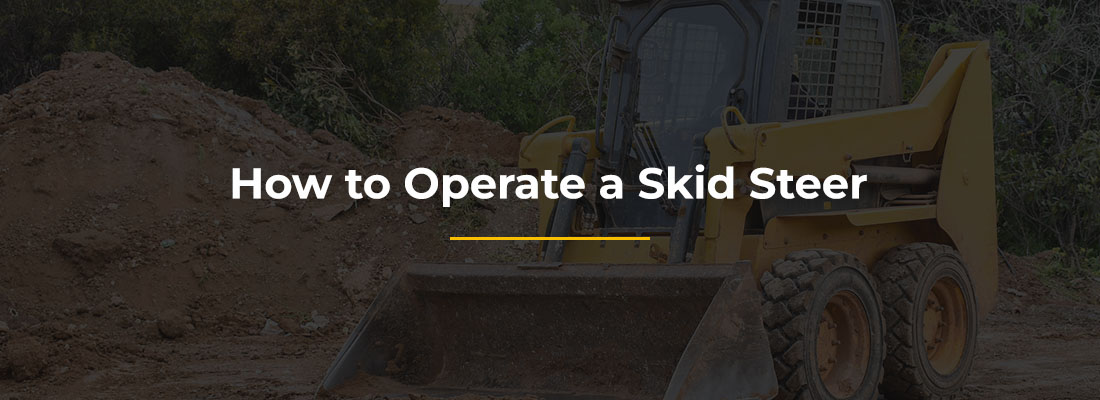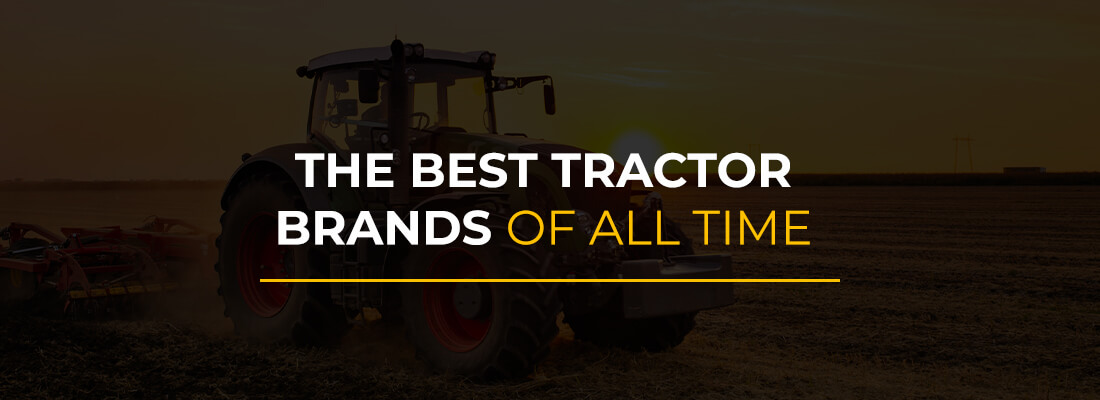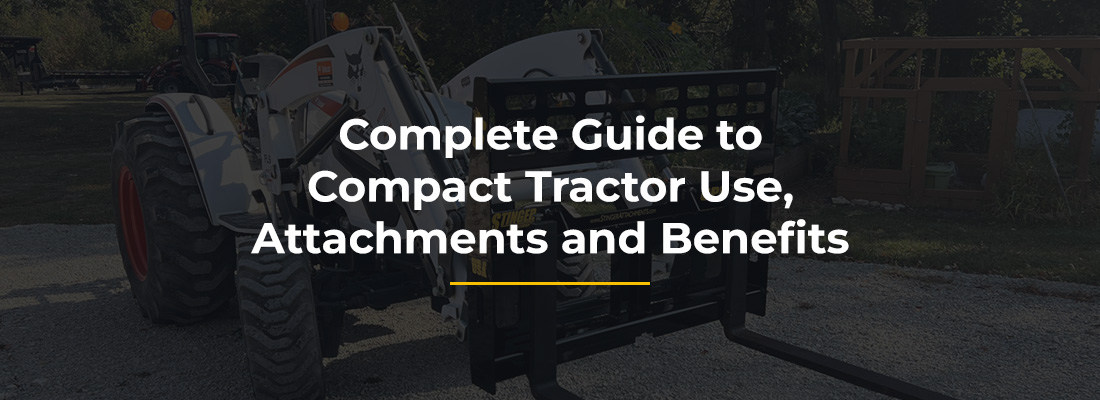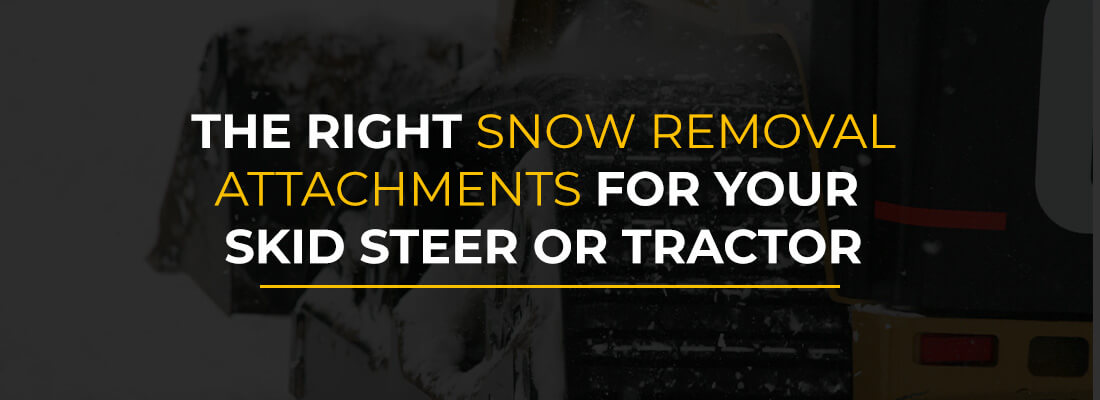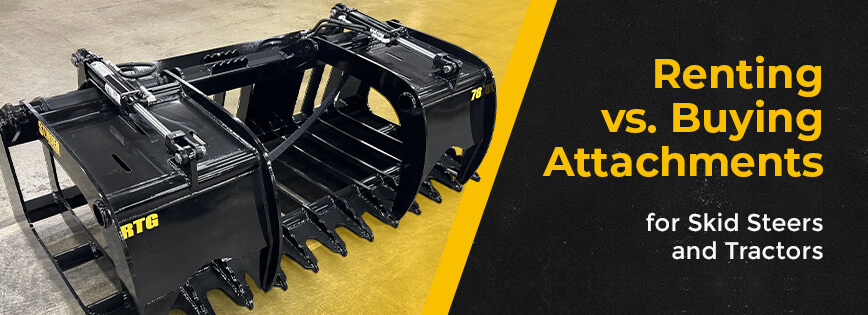
Whether to rent or buy equipment attachments is a big decision. While each option has unique rewards, you may discover that one is better than the other. To help you make an informed and knowledgeable choice, we’ve compared the differences between renting and buying attachments and their pros and cons.
Renting vs. Buying Attachments
When deciding if buying is better than renting attachments or vice versa, comparing and understanding differences in cost, flexibility, quality and return on investment is essential. Once you know the differences between each option, you can make a more informed and suitable decision.
1. Applications
Depending on your company and applications, you may do some projects more frequently than others. In agriculture, you might use your skid steer to spread gravel more often than push snow.
If your business is construction, you may do more specialty projects like road work than demolitions. Whatever your industry, investing in equipment and attachments for specific or specialty applications can make more sense and be cost-effective in the long term. Purchasing these tools ensures you have the most essential equipment for your in-demand jobs.
Renting equipment for specialty jobs means you’ll need to pay rental fees more often, which can add up in the long run. However, attachment rentals might be worthwhile if you have fewer specialized jobs or need to supplement your usual equipment for a job here and there.
2. Maintenance
Owning attachments means having total control over the care and maintenance of your equipment. You can choose your own service technicians, meaning your equipment will be cared for to your specifications. While equipment rentals undergo frequent inspections, you might have different preferences for the frequency of certain maintenance items.
Well-maintained attachments can perform better and be more reliable, preventing breakdowns and downtime. Renting means outsourcing your attachment maintenance and repairs. While outsourcing equipment can minimize your work and responsibility, it comes with other challenges. For example, your rental company might have a backlog in their maintenance department, meaning you have to put projects on hold to get your equipment fixed or replaced.
3. Operator Requirements
Whether you buy or rent equipment, you must have skilled and experienced personnel operating these tools. While various attachments can be versatile and familiar, some require more in-depth training.
Additionally, operators must have suitable certifications for operating specific machinery. Buying and owning equipment provides you with time to find skilled operators and train them to use these tools. As time passes, you and your drivers will become more comfortable and knowledgeable using these parts.
When you rent attachments, you will often find newer or more advanced models. Your operators might require time to familiarize themselves with these parts. If you have the resources and time to train yourself and your employees, renting can be a suitable option. However, if you have little time to spare, these training requirements can delay production.
Another consideration is outsourcing skilled divers with your rental. Some companies offer experienced operators in the rental agreement or package. While this solution might be worthwhile, you will need to factor those additional costs into your budget.
4. Customization
If your company specializes in interior demolition, material moving or other niche applications, you’ll need custom parts or accessories to complete the job. Buying attachments enables you to customize them to meet your niche project needs and goals.
When renting attachments, you must consider models with suitable specifications for your job. While rental companies offer various advanced parts and accessories, they can come at higher costs. These parts might also be limited or in high demand, meaning you might wait longer for your rental and risk delaying your project.
5. Availability
Another benefit of buying over renting attachments is more freedom and control when accessing equipment and parts when you need them. Unlike renting, owning equipment means you can conveniently access and transport your attachments to your project sites and start working.
Renting companies often stock advanced equipment and accessories to meet unique project specs. However, if these tools are in limited supply you’ll need to settle for a lower-grade option, which can compromise the project quality. Alternatively, if your equipment is an older model, rental companies may not carry those attachments anymore.
You might also have to search for a supplier with the required attachments. This treasure hunt can cost you valuable working time, leading to moving the project deadlines back. Delaying projects can not only lead to penalties but can also harm your reputation and credibility.
6. Costs
Buying and renting parts involve different expenses, and selecting the most financially feasible solution is essential.
Renting can reduce maintenance expenses, but you must consider additional costs for customizations, skilled operators and extended use. Rental payments are also subject to increases, especially when frequently hiring equipment. If you have numerous specialty jobs in a week or month, your rental fees could even exceed the purchase price of attachments.
Buying attachments can be more expensive upfront, but it often pays off in the long run. Unlike renting, buying equipment requires an initial payment. Once you own an attachment, you have it in your inventory for years, meaning you don’t have to hire parts or pay rental fees for projects. When you frequently use your equipment, you get the most out of your purchase and your return on investment, creating more money to put into your business.
However, when buying equipment, the onus falls on you to cover insurance costs. If you rent, you do not have this responsibility, as the rental company often covers all insurance costs.
7. Efficiency
Owning attachments means you service your tools when convenient, limiting project detractions or delays. Plus, you never have to wait for parts to become available and can get to work as soon you receive a new job, increasing your productivity and efficiency.
On the other hand, rental equipment is often circulated, meaning these tools must work harder and longer. Because of the workload requirements, rental attachments and parts could break down or malfunction more often. If these tools are in for maintenance, they might be unavailable for long periods. If there aren’t similar tools readily available, you’ll need to wait longer, delaying your project’s start and completion times.
8. Liabilities
When you buy equipment, you might have more time for maintenance and upkeep, preventing wear or damage. If anything breaks or stops working, you can get equipment fixed in-house or shop around for the best deals, offering you more oversight on the repair quality.
Equipment damages can become your responsibility when renting. While malfunctioning or broken components might not be your fault, some rental companies can hold you liable, meaning you must cover additional services and repair costs on top of your rental expenses.
Rental companies can also set unique rates for services and repairs meaning you have less control over the costs. You have little insight into the types and standards of repairs rental companies employ. If an outlet does a quick and poor maintenance job, chances are their equipment won’t be functional for long before requiring more repairs.
When Should You Rent Attachments?
Although purchasing attachments makes sense for many reasons, certain situations might mean renting is a more feasible option:
- Short-term projects: Renting an attachment can make more sense if you have a project outside your usual scope or need a part for a specialized application. Buying an attachment to use it for a limited time can increase costs and complexity for your operations.
- Reduce transport responsibilities: The great thing about renting attachments is you don’t have to worry about logistic costs and planning, as those are already factored into the rental agreement. Most rental companies will drop off and pickup your equipment when needed.
- Minimize storage requirements: Renting equipment is suitable if you have limited storage space. Your rental company is responsible for storing and securing machinery, meaning you don’t have to build or pay for additional space like a warehouse or other storage facility.
- Reduce security: Renting can be a suitable solution to minimize security expenses. Storing your equipment at your business is a significant responsibility. You must consider additional security measures like guards, fencing and surveillance tools. These features and systems can be pricey, especially if you are on a budget.
Reasons You Should Buy Attachments
The following are a few reasons buying equipment attachments is the better choice:
Long-Term Projects
Buying attachments can make more sense for your business if you have projects or jobs that fall under the 80/20 rule. The rule refers to using your equipment for 80% of your core work. If an attachment is an essential addition to your fleet, offers versatility and is required for your specific applications, investing in it can provide your business various growth opportunities.
Owning a particular attachment could offer reliability, allowing you to take on more jobs in your industry. Additionally, if this piece of equipment provides unique capabilities and customization suitable for your line of work, it could mean completing projects more precisely and accurately.
Improved Job Quality
When you buy attachments, you get your parts brand new and straight out of the box. It also means you’re the only company that uses these parts, reducing wear. You can also maintain your attachments how you prefer, leading to better-performing equipment and improved applications. Rental attachments might have more hours or years of wear, impacting your equipment performance and overall job quality.
Niche Projects
You might need attachments with unique specs and customizations if you have niche projects. The great thing about buying attachments is you can tailor your equipment to meet your job requirements without having to worry about finding a retailer or limited availability. This way, you can do jobs more precisely and meet your client’s expectations.
Avoid Delays
If you want more control over your equipment maintenance, owning equipment means you can identify and repair issues before they lead to more significant problems and breakdowns. If one of the parts stops working, you can prioritize repairs and find the quickest solutions to get your equipment up and running.
Regardless of your relationship with your rental company, they can do little to help if the part you need is in for repairs or scheduled for another project. Not having access to a specific attachment can mean forfeiting a job and losing revenue.
Increase Your Company Net Worth
Buying equipment is a great way to enhance your company’s value and net worth. You may be able to deduct the purchase of attachments from your taxes, and since they qualify as business assets, you can use certain machinery or attachments as collateral for loans.
If you keep your equipment in excellent condition, you can also sell it to make a profit and invest more money into your business and other machinery.
When you rent, you don’t have the option to sell your renting attachments. It also means you don’t get any money back from your investment in rental payments.
More Freedom and Flexibility
With versatile and advanced equipment, you can complete various applications and offer clients more services without relying on a rental company. This versatility and freedom add to your capabilities, making your company more attractive to potential customers and enhancing your net worth. Additionally, you could profit from your attachments if you sell them.
FAQ’s About Renting and Buying Equipment Attachments
Here are some answers to frequently asked questions about renting and buying attachments for your equipment:
- What should you consider when purchasing versus renting attachments? It’s important to consider how often you use your attachment when renting or buying. If an equipment attachment is invaluable to your work, buying can save you money and add more value to your business.
- Why buy when you can rent equipment? While renting can be a great short-term solution, these costs can increase in the long run. Buying equipment can help you add value to your business and earn a return on investment.
- Is purchasing equipment attachments an asset? Equipment or attachments are excellent long-term assets you can profit from if you sell.
Buy Reliable Skid Steer and Tractor Attachments From Stinger Attachments
High-quality and reliable attachments can be valuable additions to your business. At Stinger Attachments, we manufacture premium-grade skid steer and tractor attachments for numerous applications. We know the importance of dependable equipment to stay productive and competitive. That’s why our experienced and professional teams adhere to high manufacturing standards when designing and developing your attachments.
We take pride in our attachments and are known for delivering superior quality products when you want to get your projects done right and on time. Our top-notch team offers the best customer service and helps you find the products you’re looking for at competitive prices.
Browse our product line today to find value-added attachments you can rely on.


